Dinesh Raheja
'Despite his recent resurgence (Listen... Amaya and Lahore for which he won a National Award as Best Supporting Actor), Farooque stayed away from the rat race,' says Dinesh Raheja.
'And to think that in Sai Paranjpye's Katha, he ironically reprised the famous ambitious hare of the Hare and Tortoise story.'
A day after Farooque Sheikh's death, (he succumbed to a heart attack in Dubai on December 28), I got a message from Sarika, his co-star in his last film, Club 60.
Referring to my recent interview with her, she mused: 'Was just thinking how strange that you asked me the question about loss by separation or death...'
The next day I called her, and she said emotionally, "I was in absolute shock when I heard the news. My last few conversations with Farooque centered around, 'We will do this', and 'We will do that' for Club 60."
"When the film got a positive buzz, I told Farooque, 'Lagta hai, nikal padi (Looks like we are on a roll)'."
"And he good-humouredly complained, 'Looks like I will have to work a lot now.' Who was to know..."
Kindly ...
A rich career that ended with Club 60
Image: Farooque Sheikh with Sarika at a Club 60 promotional event.Photographs: Pradeep Bandekar
Poignantly, the actor's last two films Yeh Jawaani Hai Deewani and Club 60 spoke of the pain of loss due to the demise of a loved one.
In YJHD, he played Ranbir's understanding father who does not stand in the way of his ambitions and whose death makes Ranbir confront his priorities.
And in Club 60, Farooque played a parent mourning his dead son.
Farooque was lavishly praised for his performances in both these films... and sadly they were the last in a rich career that began with M S Sathyu's Garam Hawa (1974).
I still recall his striking portrayal as a post-Partition Muslim youth who decides against leaving his hometown with his family and is encouraged by his father (Balraj Sahni) to join a group of friends working for a better future.
Kindly ...
Farooque saw a period of popularity with films like Chashme Buddoor
Image: Farooque Sheikh with Saeed Jaffrey in Chashme Buddoor.With hits like the romantic drama Noorie (1979) and the comedy Chashme Buddoor (1981), Farooque saw a period of popularity, especially amongst discerning viewers.
I thoroughly enjoyed his portrayal of the love-struck, penny-pinching bachelor who shares his pad with two crazy loonies in Chashme Buddoor and consequently refused to see the David Dhawan-directed 2013 adaptation of the film.
In Sai Paranjpye's Chashme Budddoor, Farooque eloquently captured the innocent state of mind of the pre-liberalisation youth of the country.
I remember smiling through the scenes when he constantly bought cigarettes on udhaar (loan) from a paanwala because I too had a khaata (account) with Babupaanwala below my home for all the sodas I guzzled through the month.
Kindly ...
Farooque and Deepti Naval were the art house jodi of their time
Image: Farooque Sheikh with Deepti Naval in Kissi Se Na KehnaFarooque's tutty-fruity dates with Deepti Naval in the film made for delightful viewing -- they were so relatable unlike so many love sequences in Hindi films.
In the 1980s, if the Hema-Dharmendra and Rekha-Amitabh jodis created waves commercially, the art house duo Deepti Naval-Farooque Sheikh were equally applauded.
They acted together in seven films during the decade -- Chashme Buddoor, Saath Saath, Ek Baar Chale Aao, Katha, Rang Birangi, Kissi Se Na Kehna and Faasle.
Their romantic song from Saath Saath, Tumko Dekha Toh (along with Noorie's Aaja Re, Umrao Jaan's Zindagi Jab Bhi Tere Bazm Mein and Bazaar's Phir Chhidi Raat) shone brightly among Farooque's cache of soft songs amidst the din of the disco era.
The Farooque-Deepti pair returned to the screen together in Hema Malini's production, Tell Me Oh Khuda and Listen... Amaya.
"The experience of working with Farooque again was really nice and nostalgic," Deepti recalled. "Once again, Farooque and I are sitting on the sets together -- he is reading his paper and I am into my book. We talked about Sai Paranjpye, the late Ravi Baswani, the films of those times."
Kindly ...
Farooque stayed away from the rat race
Image: Farooque Sheikh with Fardia Jalal in Shatranj Ke Khiladi.Despite his recent resurgence (Listen... Amaya and Lahore for which he won a National Award as Best Supporting Actor), Farooque stayed away from the rat race -- as always.
And to think that in Sai Paranjpye's Katha, he ironically reprised the famous ambitious hare of the Hare and Tortoise story.
Farooque was completely at home as the smooth-talking liar, Bashudev Bhatt, who has everyone in the chawl, including Deepti Naval, eating out of his hand much to Naseeruddin Shah's chagrin.
Farooque never lacked acknowledgement of his talent -- directors of the calibre of M S Sathyu (Garam Hawa), Hrishikesh Mukherjee (Rang Birangi), Muzaffar Ali (Umrao Jaan) and Satyajit Ray (Shatranj Ke Khiladi) cast him in their films.
His occasional outings with mainstream mammoths like Yash Chopra (Faasle) and Manmohan Desai (Toofan), unfortunately, proved to be box office duds and decelerated his tryst with the limelight reserved for top stars.
Kindly ...
'When you are not acting, there is so much to do'
Image: Farooque Sheikh and Poonam Dhillon in Noorie.Just a month ago, Farooque told my colleague Itee Sharma, "I don't do too many films, just one film in a year."
He knew the importance of leading a rich, fulfilled life.
"When you are not acting, there is so much to do," he said. "You meet friends and spend time with the family. I enjoy lolling around and not working. That is a character trait. The market is full of work, be it in TV or films. It depends on how much you want to do."
Sanjay Tripathi, the director of Club 60, recalls, "Farooque was full of life."
Reflecting on his non-fussy nature, he says, "He was very fond of food. On the first day of the shoot, when he ordered a sandwich, I asked him which bread he wanted; he said he didn't get into these insignificant details. But he was particular about his film."
"He told me that our film was special, and we should promote it as Caviar, not Chaat."
"He died at 65," says Sanjay. "He definitely should have been part of Club 70."
Kindly ...
He was mesmerising; his voice crystal clear, his diction impeccable...
Image: Farooque Sheikh, one of the finest actors of our time.I saw Farooque in person on two occasions -- once when I saw him on stage in the play, Tumhari Amrita, and on the other occasion when I ambled up to him after watching a film around a decade ago.
He was with his wife Rupa smoking a cigarette and we chatted as if we had known each other for years.
He was soft-spoken and articulate and a patient listener.
On stage, in Feroz Khan's play Tumhari Amrita, he was mesmerising; his voice crystal clear, his diction impeccable.
Amrita Nigam (Shabana Azmi) and Zulfikar Haider (Farooque Shaikh) read out letters exchanged over 35 years, the first letter exchanged in 1940, and created a world of unrequited love.
Kindly ...
'Even in his SMS you can hear his diction'
Image: Farooque Sheikh with Rekha in Umrao Jaan.Sarika feels that tehzeeb (culture) coursed through his veins.
"His respect was soul deep, not artificial. Some people say the right things to appear correct. He was a thorough gentleman and very accessible. Forget conversations, even in his SMS you can hear his diction."
She formed a mutual admiration society with him as actors. "He took great pride in my work, he was particularly impressed by my performance in Parzania."
"Recently, when we attended an awards function together," Sarika recalls, "he was one of the nominees for the best actor award, but told me that his fellow nominee Rajkumar deserved to win for Shahid."
Bollywood has lost a fine actor and a gentleman.
Dinesh Raheja is editor, Bollywood News Service. He has written two books on cinema, The Hundred Luminaries Of Hindi Cinema (1996) and Indian Cinema, The Bollywood Saga (2004).

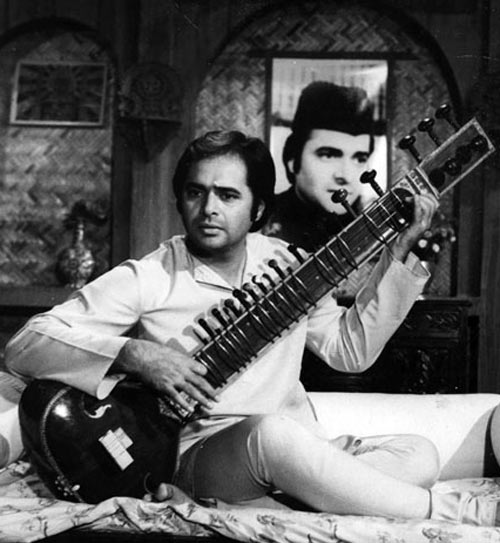

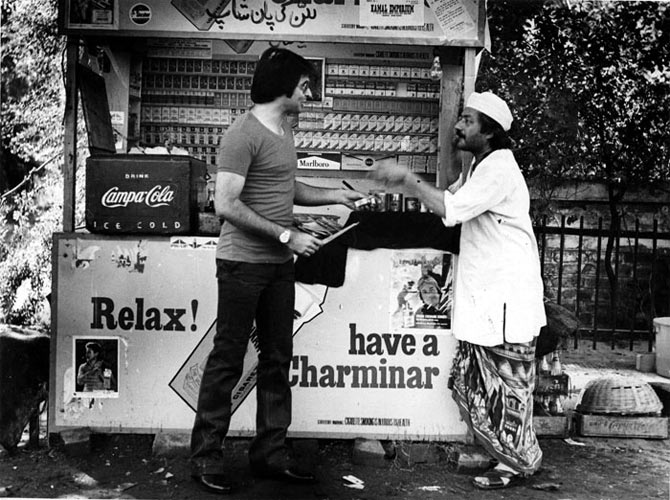
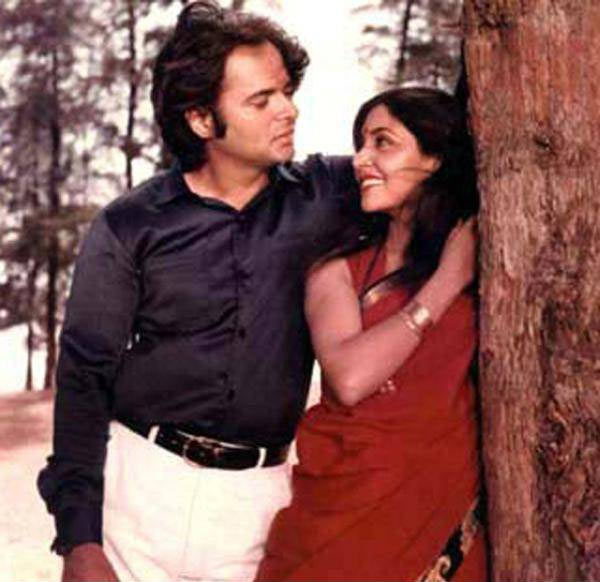
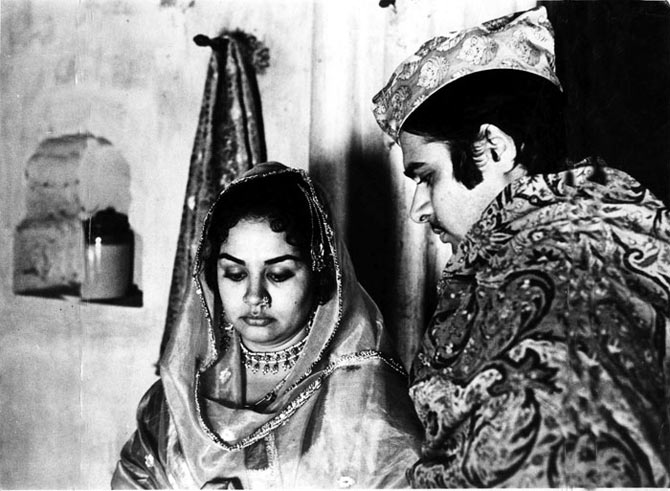
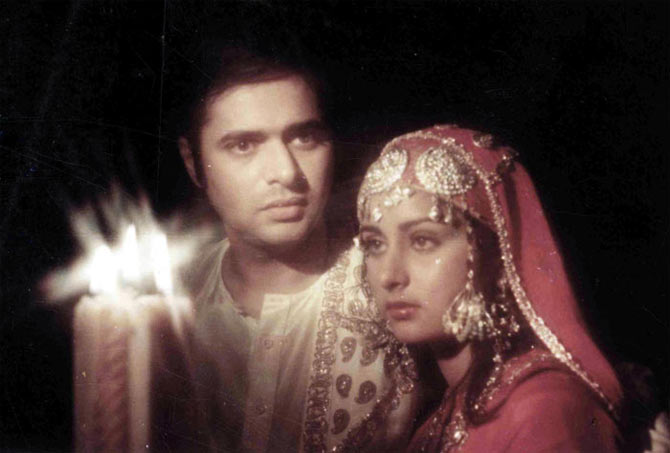
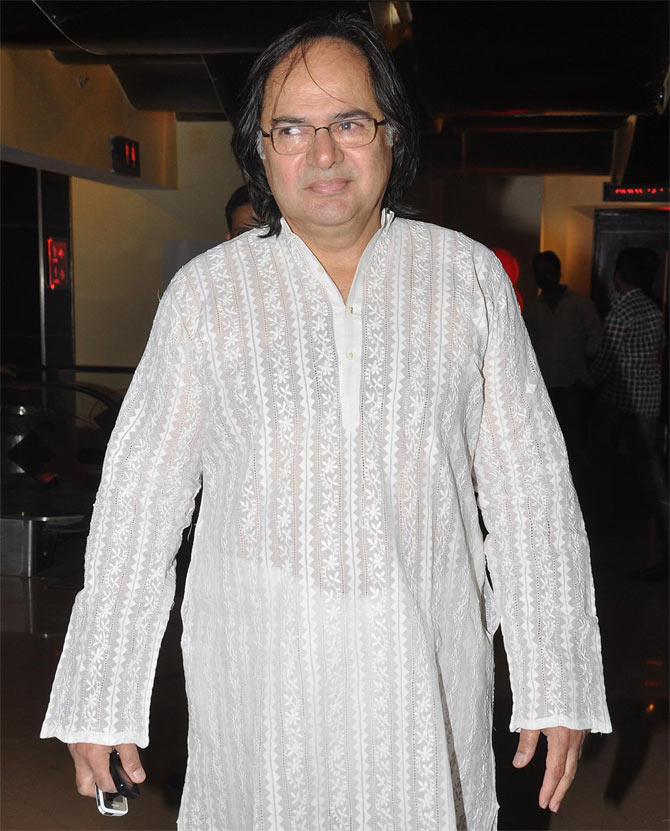
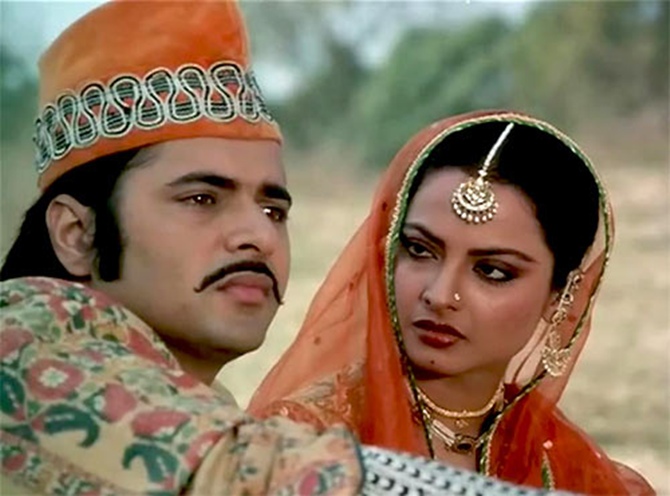
Comment
article